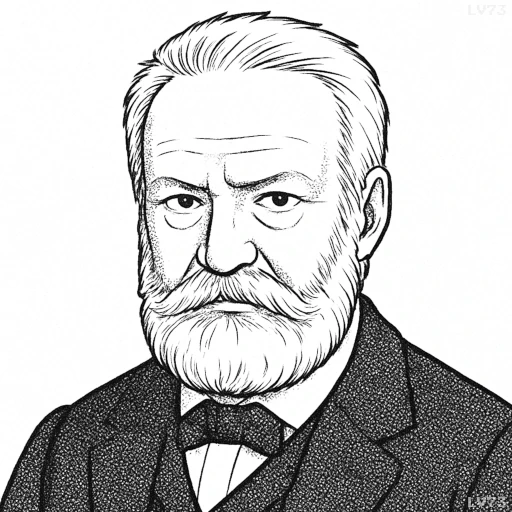“Try as you will, you cannot annihilate that eternal relic of the human heart, love.”

- February 26, 1802 – May 22, 1885
- Born in France
- Author, poet, playwright
table of contents
Quote
“Try as you will, you cannot annihilate that eternal relic of the human heart, love.”
Explanation
In this quote, Victor Hugo emphasizes the indestructibility of love—an emotion that is deeply embedded in the human heart and transcends any effort to eliminate it. He describes love as an “eternal relic”, suggesting that it is both ancient and timeless, a part of the core of human nature that cannot be destroyed, no matter how much society, time, or circumstances try to suppress it. Hugo’s words convey the idea that love, in all its forms, is an inherent and irreplaceable force within the human experience. It is something that endures, even through hardships and challenges, and cannot be erased or forgotten.
Hugo’s statement speaks to the power of love as a universal force that connects all humans. Whether in moments of joy, suffering, or change, love remains a constant part of the human experience, offering both strength and purpose. This idea aligns with the Romantic belief in the enduring power of love to inspire, heal, and unite people across time and space.
In modern terms, this quote suggests that no matter what happens in the world—whether through conflict, loss, or the passing of time—love will always endure. It is a reminder that love is not something that can be easily controlled or extinguished, but rather a fundamental part of the human condition that continues to shape and inspire us, regardless of the challenges we face. It encourages us to recognize the timeless nature of love and its capacity to survive and thrive in all circumstances.
Would you like to share your impressions or related stories about this quote in the comments section?




